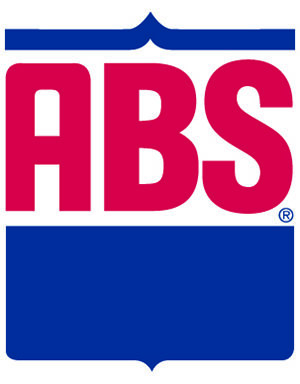There is little change in the emphasis on breeding quality cow families in the herd that has been named Master Breeder three times.
“The biggest difference is that we are selling embryos,” Schwartz says. “Paul preferred to sell live cattle. He wanted everyone to get something special when they bought a heifer.” The farm had not ignored the technology of embryo transfer, but Paul would feel bad if the purchaser did not get a good crop of live calves from their purchase.
“The farm is well known and there was a ready market for the genetics,” Schwartz says. The farm’s location has been a bonus in its marketing program, as well as the show circuit. The farm is only 20 minutes from the Toronto airport and that has facilitated a lot of visits through the years.
“We can be downtown at the Royal (Agricultural Winter Fair) in 20 minutes,” Schwartz says. “That is a great bonus but at times we feel we are being crowded out as well.” The farm remains the last one in a well-developed industrial area, and lost its last dairy neighbor when Sunny Maple moved out eight years ago.
The farm has 60 acres, which provides limited pasture for the 100 or so cows. It milks 70 to 72 cows to fill its quota, and has a well-designed environmental plan to deal with manure. The cows are housed in a tiestall barn with a pipeline milking system and are milked twice a day, at 4:30 a.m. and 4 p.m. The milking cows get out for two hours a day in an exercise area that does not have feed available. They are out while the barn is rebedded.
“I don’t want our 2-year-olds to look like 4-year-olds,” he says. “We could do that and push them a lot harder, but we fill our 72 litres of quota with 70 cows. We use a lot of hay in the rations and I find when I use a hotter ration I have more trouble with feet and legs and mastitis; we try to strike a balance.”
The farm does not have enough acres to provide its own feed, but getting quality feed is not a problem.
“With Paul being in the forage seed business, it is never an issue to get a customer to provide hay.” Says Schwartz, “We have access to good forages and the protein comes from corn or soybeans.
“We pay the bills with the milk cows,” Schwartz adds, “but there is a real emphasis on the breeding program and the genetics that we sell.”
Paul Ekstein is a firm believer in cow families and emphasizes that in breeding over sire selection. Much of his initial success came from the Wendy cow family and a bull he owned together with United Breeders.
The bull, Quality Ultimate, was a monster of an animal that measured 76 inches at the shoulder and dominated the show ring, as well as influencing herd genetics. In 1979 he had an offspring in every class at World Dairy Expo in Madison, Wisconsin.
The Wendy family had strong influence on the Quality herd in the early years, but of late the role of Plushanski Valiant Fran has become more dominant.
“We bought her from a family in Pennsylvania in 1980 and she has had a real impact and was a great brood cow,” Schwartz says. “She had 35 stars for her offspring and that is a real accomplishment.” The farm has won seven Breeder Herd banners at the Royal Winter Fair in Toronto, Ontario, a record in itself.
Paul has emphasized strong type cows with good depth of rib and longevity; many of the cows in the herd are 10 years old. Ari continues to emphasize the same traits.
“Looking to the future, I don’t see things changing a lot with the emphasis on the breeding program,” Schwartz says as he looks to work with another generation. “We might have some changes if we have to move to another location, but I don’t see that happening before it is absolutely necessary.”
The Eksteins have built a reputation on steady trustworthy business and changes need to be justified, not made just for the sake of change, even with their employees. Schwartz is the junior member of the team with 24 years; two other employees claim 25 and 27 years, respectively.
“We always have a Japanese exchange person on the farm,” laughs Schwartz, “but the rest of us have been here a while.”
In 2008, Paul was named to the Canadian Agricultural Hall of Fame to go along with numerous awards he and the cows received from the Canadian Holstein Association. PD
PHOTO: Paul Ekstein, right, is transitioning his dairy business over to his son, Ari, left. This well-bred Holstein herd includes Quality BC Frantisco EX-96, pictured here. She was twice named Supreme and Grand Champion at the Royal Winter Fair. Photo courtesy of Quality Holsteins.
Les Kletke is a field editor from Altona, Manitoba. Click here to email Kletke.





